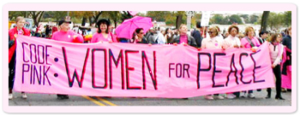International Day of Women and Girls in Science

Science and gender equality are both vital for the achievement of the internationally agreed development goals, including the 2030 Agenda for Sustainable Development. Over the past decades, the global community has made a lot of effort in inspiring and engaging women and girls in science. Yet women and girls continue to be excluded from participating fully in science.
In 2015 the United Nations General Assembly adopted a resolution to declare February 11th as the International Day of Women and Girls in Science. This effort to help break down barriers in Science, Technology, Engineering, and Mathematics (STEM) fields for women is focused on empowering young girls as they accesses information and pursue opportunities within the sciences.
According to UNESCO, as of 2016 only around 30% of all female students select STEM-related fields in higher education, and as of 2021 less than 30% of researchers worldwide are women.
Addressing the gender gap in STEM is crucial for achieving the Sustainable Development Goals by leaving no girl behind in this vital journey and ensuring that we are addressing gender stereotypes that limit women to join STEM careers.
Did you know?
- Women are typically given smaller research grants than their male colleagues and, while they represent 33.3% of all researchers, only 12% of members of national science academies are women.
- In cutting edge fields such as artificial intelligence, only one in five professionals (22%) is a woman.
- Despite a shortage of skills in most of the technological fields driving the Fourth Industrial Revolution, women still account for only 28% of engineering graduates and 40% of graduates in computer science and informatics.
- Female researchers tend to have shorter, less well-paid careers. Their work is underrepresented in high-profile journals and they are often passed over for promotion.
What can you do for Girls and Women in Science?
- Always tell young girls that they can achieve anything if they work for it, even math and science, avoid passing on math anxiety
- Check to see if your child’s school provides professional education to teachers — addressing implicit and systemic biases and to raise awareness about girls’ math abilities and ensure boys and girls are held to the same standards.
- Enroll your girl in after-school and summer STEM opportunities for girls.
- Inform your child of higher education and career opportunities, role models and mentoring programs with women and women of color in STEM for girls in your community.
- At work recruit female employees and work to retain and promote women throughout their careers with strong advancement pipelines and continued professional development and leadership training.
- Promote welcoming work environments, including providing pay equity; flexibility; strong family and medical leave policies; inclusion and anti-bias training; mentorship, networking and ally-ship opportunities; and strong anti-discrimination and anti-harassment policies.
- Break your Biases: “I still remember asking my high school guidance teacher to take a second year of algebra instead of a fifth year of Latin. She looked down her nose at me and sneered, ‘What lady would take mathematics instead of Latin?’ Nancy Grace Roman, “Mother of the Hubble Telescope”
In order to end inequality greater collective efforts of citizens worldwide are needed to reduce inequalities in race, income, sex, age, disability, sexual orientation, class, ethnicity, religion and opportunity. The election showed that America has 81 million citizens strong and growing that want to work together to rid America of systemic inequalities and believe things can change for the better for all people.
The struggle for equality requires a rededication by all people that believe in inclusive democracy to the long struggle ahead to rid America and the world of inequalities.
So join with Codepink as we work together to reduce inequalities in our local community.
PHOTO:UNICEF Photo/UN0145554/Karin Schermbrucker








